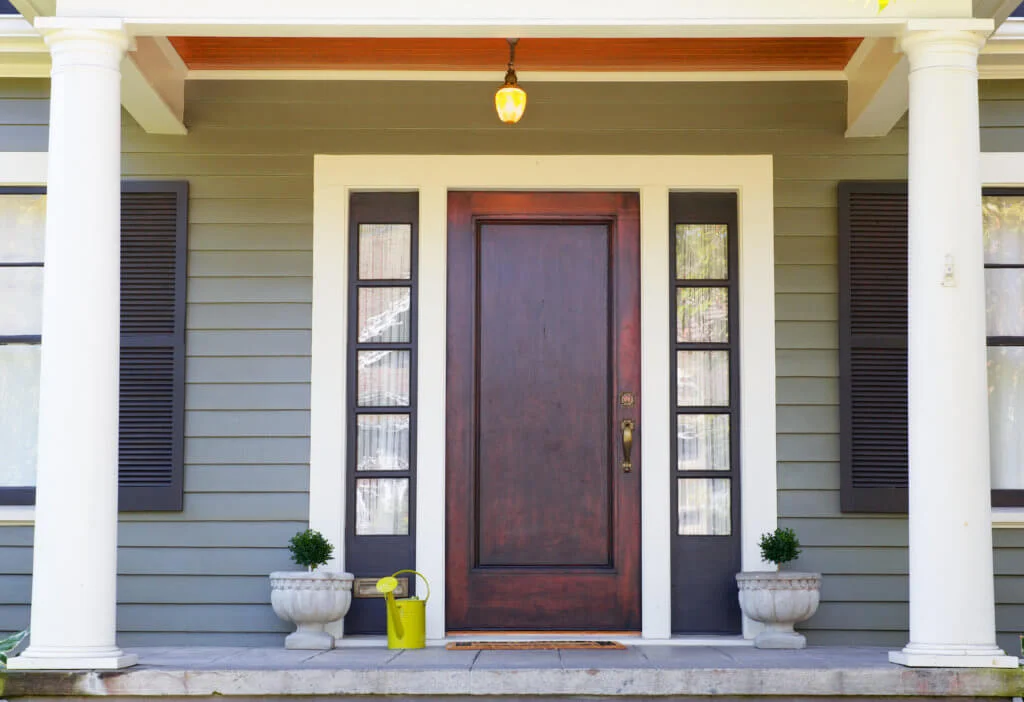Inheriting a house comes with added liability and property damage risks. That means you want to be sure to have the right type of policy in place to keep your own assets protected. Depending on your plans for the home, you have several choices when it comes to insurance.

What Are Your Insurance Options on an Inherited House?
1. Homeowners Insurance
When you’re inheriting a house, the deceased homeowner’s policy doesn’t automatically transfer to you. You’ll need to get your own policy. Unless you plan to move into that home, you likely won’t qualify for a traditional policy.
That’s because homeowner’s insurance is for homes that are the primary residence of the policyholder. They typically do not provide coverage for a home that’s unoccupied for stretches of 30 days or more.
If you don’t plan to take up residence, it’s almost guaranteed that once the home transfers, you won’t be able to get a standard homeowner’s insurance policy on the property.
2. Unoccupied Property Policy
Insurance companies are in the business of risk, and they know vacant properties can be targets for vandals and thieves. What’s more, when a property is empty, there’s no one around to prepare for storms or make sure that tiny leak or electrical issue doesn’t turn into a major flood or fire.
As a result of that increased risk, unoccupied insurance policies can be quite expensive. The good news is, you may be able to purchase a policy that covers the property for three to six months while you get ready to sell, a cheaper alternative to buying a policy for a full year.
3. Landlord Insurance
Suppose you decide you want to rent the home. As a landlord, you want to protect your home from damage. That means you’ll need a landlord insurance policy, also called a rental property policy. Rental policies protect you against many types of damage to your property.
They also provide liability protection if someone is injured on your property. When buying a landlord policy, it’s critically important to make sure you have ample coverage. You might even want to consider an additional umbrella policy for added protection and peace of mind.
4. Second Home Insurance
Maybe your loved one owned a property in a popular vacation spot or another destination that’s near and dear to you. In that case, you’ll need second home insurance.
Like unoccupied property insurance, second home insurance is more expensive than a regular homeowner’s policy because it recognizes the added risk that comes from having the home vacant during large stretches of time.
Can You Insure a House That Is Not in Your Name?
In a nutshell, yes, you can insure a house that’s not in your name… but this type of coverage doesn’t offer the comprehensive protection you need.

When you insure a home that’s not in your name, you’re really just paying the insurance bill for the legal owner. It’s almost as if you’re loaning the legal owner money to pay for the policy.
Why? Because it’s very difficult to find a policy that names a party without “insurable interest.” While an insurer would allow you to make payments on a policy, if you were to ever make a claim, you’d likely face litigation. Keep in mind that courts generally rule that protections must be clearly stated in a policy to apply.
Of course, exceptions exist.
For instance, if the house is held by an LLC or in a trust, it may make sense for you to purchase insurance in your name… as long as you can prove that you hold an interest in the entity that holds the property.
It all boils down to one key fact: The insurance company makes the final decision.
That means if you can prove you have an interest in the property, they’re more likely to allow you to be named on a policy. If you want to pass the insurable interest test, you’ll need to be ready to back up your claim with the proper documentation.
How Can You Change the Name on Homeowner’s Insurance?
You’ll contact the insurance company and request they list you as the “insured intended.” You’ll provide information to the insurer, such as the deceased’s name, date of death, address, and policy number.

To make this important change, you’ll need to ask the insurance company to list you as the “insured intended.” You’ll provide information to the insurer, such as the deceased’s name, date of death, address, and policy number.
The insurer may also require proof of your interest and supporting documents, such as a death certificate and documents that prove you are the executor.
This template of a letter to the home insurer may help you through the policy updating process.
Can You Insure a House In Probate?
Often, a house will end up in probate after the homeowner passes away. Probate can be a time-consuming process that takes several weeks — or even months.
What does that mean for a new homeowner who doesn’t want to leave the property uninsured during the probate process?
Fortunately, many insurers offer policies just for these circumstances, sometimes known as temporary or short term home insurance. You will need to prove that you have an insurable interest in the house in order to take out a policy.
Often, probate insurance policies are issued in the name of the estate’s executor. However, beneficiaries may also be listed as additional policyholders.
Probate home insurance offers a number of benefits. In most cases, you can take out a policy for short periods, with the option to renew if probate lasts longer.
Many insurers offer different levels of coverage. You can choose whether you would rather pay for full coverage that protects against most risks, or a less-expensive reduced coverage that protects against just a few common risks.




